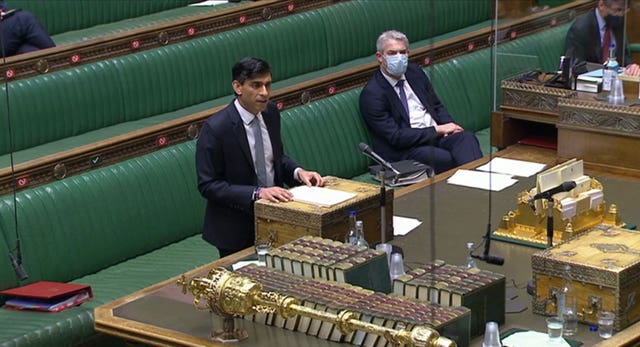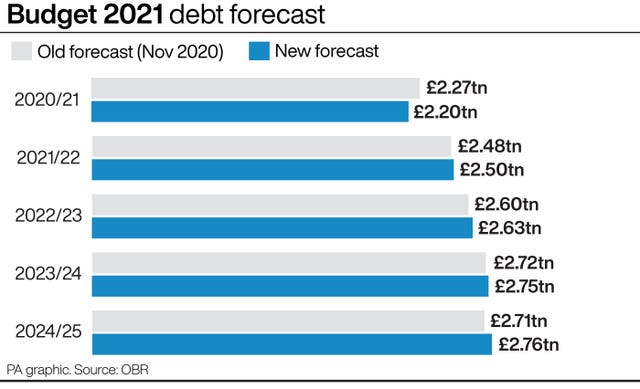
The Chancellor’s decision to freeze personal tax thresholds will create a “fiscal drag”, bringing 1.3 million people into the tax system, the fiscal watchdog has said.
Rishi Sunak announced in his Budget on Wednesday that both the personal allowance and the basic rate limit will be set at 2021-22 levels for five years.
The move is expected to raise £8 billion per year by 2025-26 if incomes rise with inflation, according to the Office for Budget Responsibility (OBR).
The Treasury’s own Budget “red book” declares that it will cost taxpayers £1.5 billion in 2022/23, £3.6 billion in 2023/24 and £5.79 billion in 2024/25, raking in £19 billion in total for the public purse by 2026.
In his Commons address, Mr Sunak said he would uphold the Conservative Party 2019 manifesto pledge not to raise the rates of income tax, national insurance or VAT, but would instead freeze the lower and upper tax thresholds on income tax.
The Cabinet minister said “nobody’s take-home pay will be less than it is now, as a result of this policy”, but acknowledged it “does remove the incremental benefit created had thresholds continued to increase with inflation”.
Setting out the changes to MPs, he said: “We will of course deliver our promise to increase (the personal tax threshold) again next year to £12,570, but we will then keep it at this more generous level until April 2026.”

The 40p rate threshold will increase by £270 to £50,270 and then be frozen, he added.
The lower personal tax allowance is the amount of income an individual does do not have to pay tax on.
For lower earners, should their wages increase by April 2026, they could find themselves paying tax on their income for the first time, due to the threshold ceiling failing to rise over the next half a decade.
Meanwhile, those on middle incomes could find they breach the new £50,270 limit, tipping any income earned over that threshold into the 40% tax band.
In its economic and fiscal outlook report, the OBR said the freeze will bring 1.3 million people into the tax system and create one million higher-rate taxpayers by 2025-26.

The OBR said that “in real terms” the personal allowance in 2025-26 will be “back to a level it last stood at in 2014-15”, rolling back the clock more than 10 years.
It predicted that, along with the hike in corporation tax, the personal allowance and higher-rate standstill would “generate even greater fiscal drag in the income tax system”.
The changes come after the Chancellor said coronavirus has caused one of the “largest, most comprehensive and sustained economic shocks this country has ever faced”, with the Government response leading to the “highest level of borrowing since World War Two”.
He said measures to support the economy amounted to £65 billion over this year and next, taking the total Government support to £407 billion over that period.


Comments: Our rules
We want our comments to be a lively and valuable part of our community - a place where readers can debate and engage with the most important local issues. The ability to comment on our stories is a privilege, not a right, however, and that privilege may be withdrawn if it is abused or misused.
Please report any comments that break our rules.
Read the rules here